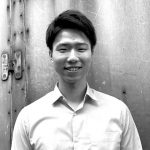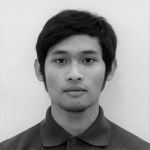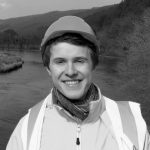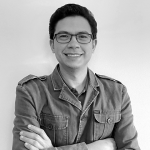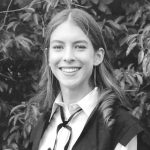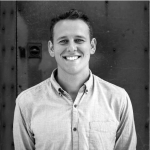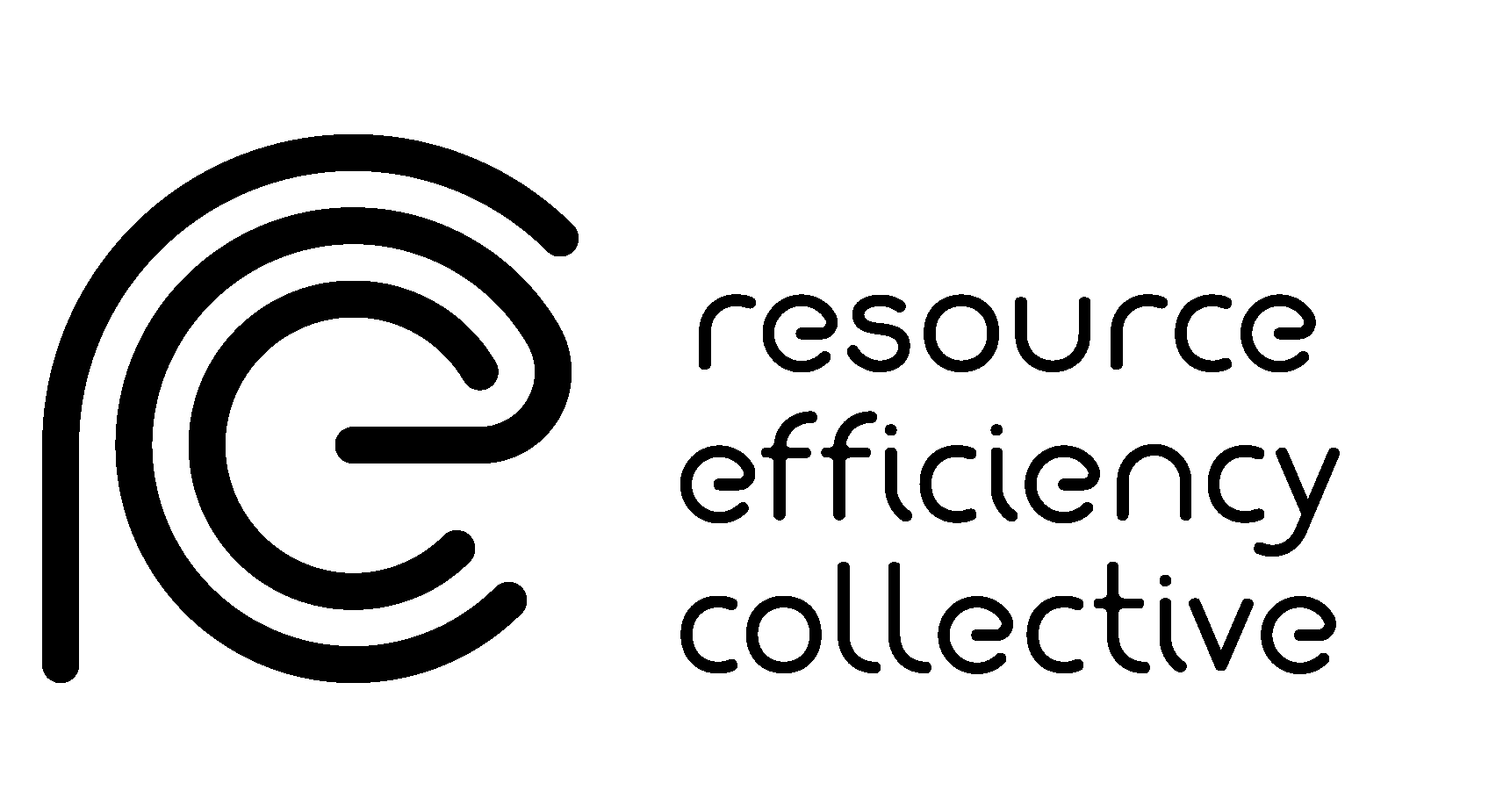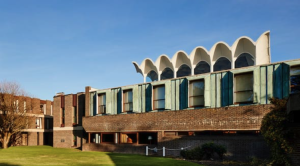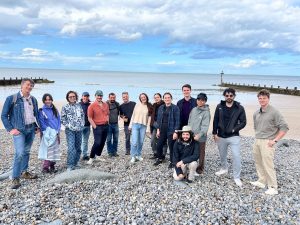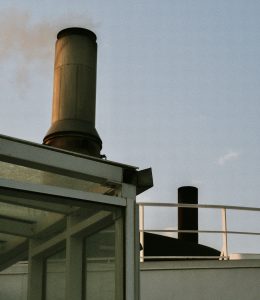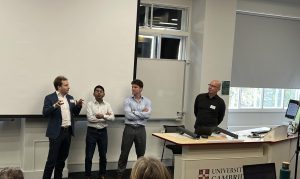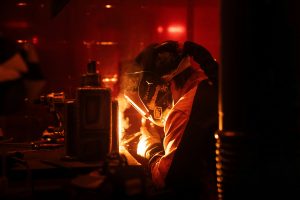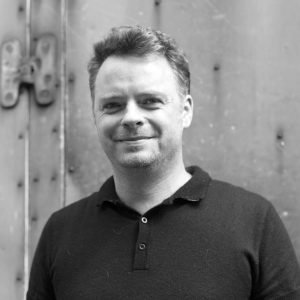
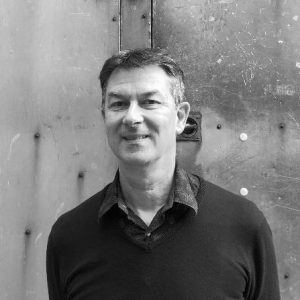
Luc Le Lay (Programme Manager)

Mehrnoosh Heydari (Research Associate)
Mehrnoosh is a Research Associate, working on the Climate Compatible Growth (CCG) programme. She is working on measures of critical minerals supply chain resilience, aiming to mitigate these minerals’ supply risks. Mehrnoosh has earned her Ph.D. in Mining Engineering from Amirkabir University of Technology (Tehran polytechnics), Iran. During her doctoral dissertation, she researched the environmental, economic, and social impacts of deep and large-scale open-pit mines, with a focus on copper mines.
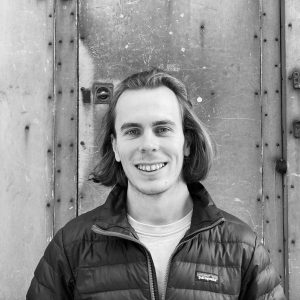
Baptiste Andrieu (Research Associate)
Baptiste is a Research Associate working on the Climate Compatible Growth (CCG) programme. He aims to model critical mineral supply to find out how Global South countries can capture more value from mineral processing. He holds a PhD in earth and environmental sciences and a MEng in materials science from Grenoble-Alpes University, France. During his PhD, Baptiste worked on the construction of a stock and flow consistent model to calculate raw materials needs for the construction of infrastructures in every world region over the period 1900-2050. He also focused on using input-output modelling in order to regionalize economic exchanges and impacts offshoring in that model.
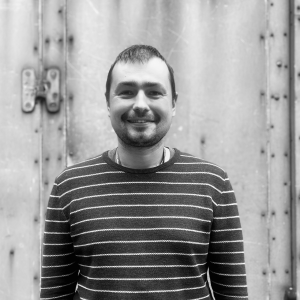
Alexey Noskov (Research Associate)
Alexey is a Research Associate working on the Climate Compatible Growth (CCG) programme. He holds a Master’s degree in Cartography and Geoinformation (focused on Arctic coastal and bottom dynamics) from Moscow University and a PhD in Environmental Engineering (specializing in 3D generalization of urban environments and urban data integration) from the Israel Institute of Technology (The Technion). He has been a postdoctoral research fellow, completing various projects at Heidelberg University (geospatial data quality and web services), Phillips University of Marburg (robotics for forest phenology monitoring), and the University of Twente (satellite imagery resolution enhancement using machine learning). His current research focuses on GIS, Remote Sensing, and GeoAI methods for geospatial modeling of material demand, supply, and flow.
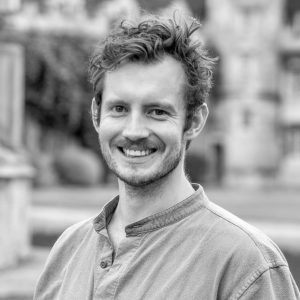
Sam Stephenson (Research Associate)
Sam is a Research Associate, working on the Climate Compatible Growth (CCG) programme. His work explores the demand for critical materials in decarbonisation pathways, how the demand for critical materials leads to geo-political dependencies and the potential for disruption. Sam earned his PhD from the University of Cambridge looking at the development and implications of different net zero pathways in the UK. His research focused on how cost-optimisation modelling informs politics and blocks the creation of alternative pathways. He also holds an MSc in Environmental Economics and Climate Change from the London School of Economics, and a BA in Mathematics and Philosophy from King’s College London.
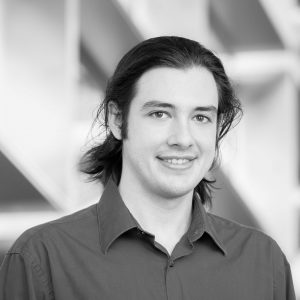
Philip Mitchell (Research Associate)
Philip is a Research Associate with the Climate Compatible Growth Programme (CCG). He is currently investigating risks to critical material supply chains. He holds a Ph.D. in Environmental Science and Engineering from King Abdullah University of Science and Technology (KAUST). During his Ph.D., he studied peak oil, limits to economic growth, and the spatial distribution of human populations. He also holds an M.S. in Energy Resources and Petroleum Engineering from KAUST and a B.S. in Environmental Sciences, Policy, and Management from the University of Minnesota.
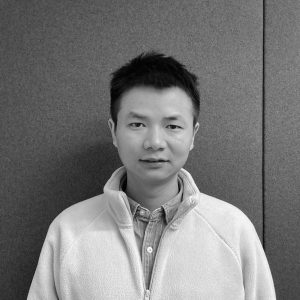
Liang Yuan (Research Associate)
Liang is a Research Associate working on the BuildZero programme. He focuses on exploring the extent to which the circular economy could meet the need of the building and construction sector of a country, achieving a triple “Net Zero”, i.e., zero raw material extractions, zero waste, and zero emissions. His research interests include circular economy in construction, building material circularity, construction waste management, and embodied emission reduction. He is proficient in combining digital technologies (e.g., big data, machine learning, computer vision, and remote sensing) with multi-disciplinary knowledge (e.g., architectural design, construction material, life cycle assessment, and material flow analysis) to model and simulate the urban metabolism of construction materials, thereby underpinning circular economy promotion in construction. Liang obtained his doctoral degree from the University of Hong Kong. He has an interdisciplinary background of Material Science and Architectural Engineering.
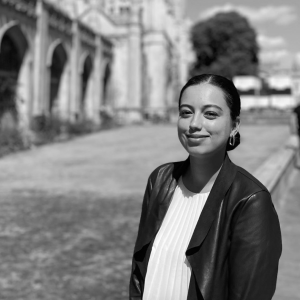
Gretel Cuevas Verdin (Research Assistant)
Gretel is a writer and policy expert specialising in international development, particularly in energy policy and climate change mitigation. She has held leadership positions and collaborated with embassies and international organisations in the U.S., U.K., and Mexico. As a 2020 Watson Fellow, she conducted research projects across Africa, the Middle East, and Asia.
Gretel earned her B.A. in Political Science and Government from Bryn Mawr College, with a specialisation in public policy from the London School of Economics. Additionally, she holds an MPhil in Development Studies from the University of Cambridge, where she focused on the social and environmental impacts of critical mineral extraction.
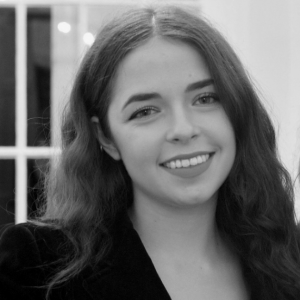
Grace Beaney-Colverd (PhD Student)
Grace is a PhD student exploring the potential uses of earth observation and remote sensing in assessing buildings for retrofit. She has a masters degree in Physics and Philosophy from the University of Oxford, and spent three years working as a strategy consultant in London in the retail and payments sector. Grace then completed an MRes as part of the AI for Environmental Risks CDT using deep learning to automate post-hurricane damage assessments.
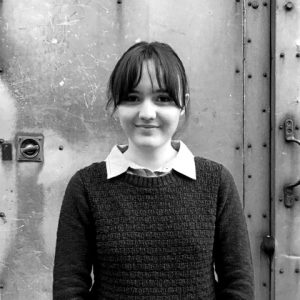
Ana Boskovic (PhD Student)
Ana is a third year PhD student in the Resource Efficiency Collective supervised by Prof. Jonathan Cullen. Her PhD is sponsored by the Department for Energy Security & Net Zero to study the material impacts of delivering net zero buildings in the UK. Ana is exploring how circular economy strategies and low embodied carbon materials can be integrated into retrofit supply chains. Ana completed her master’s degree in 2022 in Environmental Technology: Business and the Environment at Imperial College London and has a background in green chemistry, having graduated from the University of Nottingham with a BSc Chemistry degree in 2021.
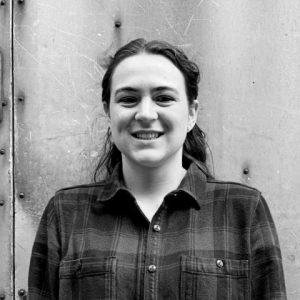
Lihani du Plessis (PhD Student)
Lihani is a PhD student with a multidisciplinary background interested in the interconnections of various systems that affect health. The goal of her PhD research is to understand how to make the NHS medical supply chains more socially sustainable and free from Modern Slavery. Prior to her PhD she received an MPH in public health from the University of Alberta, MPhil in history and philosophy of science from Cambridge, and bachelor’s degrees in history and biological sciences from Oregon State University.

Ella Jennings (PhD Student)
Ella is a third year PhD student, inspecting global energy conversion chains and analysing energy storage, energy transportation, and what this means for energy security. She first studied for a BSc in Astrophysics and Geophysics at University College London before moving into engineering, completing the Energy Technologies MPhil at Cambridge University in 2021. For her master’s thesis she researched energy conversion pathways and their efficiencies through the global energy system, abstracting away from technical devices to the fundamental conversions between energy forms. Ella then worked in the Resource Efficiency Collective as a research assistant on the C-THRU project, operationalising the petrochemical industry’s Geographical Archetype Model.
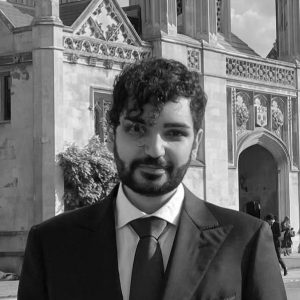
Amir Keshavarzzadeh (PhD student)
I was born near the lush, mountainous jungles of El Ávila, where the beauty of nature first sparked my love for the planet and a commitment to its preservation. Later, spending my teenage years hiking the mountainsides of Damavand only deepened this connection to the Earth and heightened my desire to protect it. This passion led me to pursue a Bachelor’s degree in Mechanical Engineering at the University of Tehran, where I focused on sustainability and energy transitions to address the challenges of climate change. Eager to expand my knowledge, I went on to earn a Master’s in Energy Science and Technology from ETH Zurich (Swiss Federal Institute of Technology). There, I explored innovative approaches to a more sustainable energy future. Currently, I’m pursuing a PhD at the University of Cambridge, with research spanning policy analysis to cutting-edge technologies aimed at supporting a resilient, low-carbon world. Beyond my academic pursuits, I have a deep appreciation for quantum physics and philosophy. I enjoy hiking, yacht riding, playing music, and exploring urban landscapes, often wandering through cities to discover new cafes and cultural experiences.
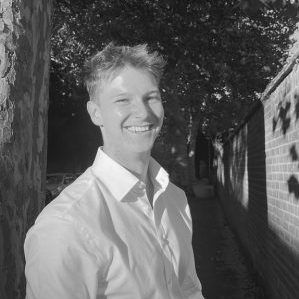
Benjamin Adams (Junior Software Engineer)
Benjamin graduated with a first-class MEng from the University of Cambridge in 2025, with a dissertation focusing on quantifying risks to the UK’s critical material supply. Currently, he works as a software engineer for the CCG project, where he is exploring data enhancement via machine learning
![9d7542cd-72d1-4348-a62d-0b64b2a0d6d9[54] 9d7542cd-72d1-4348-a62d-0b64b2a0d6d9[54]](https://www.refficiency.org/wp-content/uploads/2025/10/9d7542cd-72d1-4348-a62d-0b64b2a0d6d954-300x300.jpeg)
Chris Toavs (PhD student)
Chris is a first year PhD with a multidisciplinary background. Her research focuses on mitigating the environmental impact of single-use plastics in diabetes care technology and supplies. As a person with diabetes herself, Chris is passionate about advocating for patients and previously worked to add rapid-acting insulin analogues to the WHO Essential Medicines List with T1International. From Humanities to STEM, Chris completed her Master’s degree in International Health Policy at the London School of Economics and Political Science and earned a BA in English and Political Science at Northwest University.
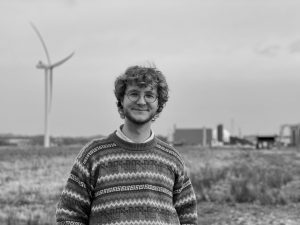
Enar Leferink (PhD student)
Enar is a PhD student investigating the fundamental economic and geographic ground rules necessary for circular economy to be both economically functional and more sustainable than the linear alternative. He holds a Master of Environmental Science from Yale University, where he specialised in industrial ecology and industrial symbiosis. His honours master’s thesis developed methods to understand the fluctuations in quantity and quality of waste that make it difficult to keep using that waste as a resource in a circular system. Prior to Yale, Enar completed his BA in Economics at the University of Chicago. He has taught at both Yale and Chicago. He continues research with Yale on new pathways for industrial symbiosis and with the University of Iceland’s Faculty of Civil and Environmental Engineering on behavioural topics such as the influence of climate concern on carbon footprint and whether a high carbon “budget” contributes to life satisfaction. Enar has received multiple awards and scholarships from various universities, institutes, foundations, and conferences and his PhD is funded by the Cambridge King’s College International Scholarship.
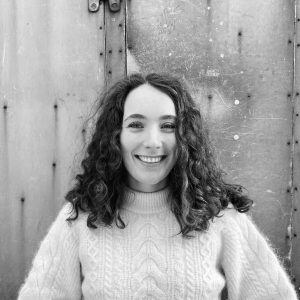
Laura Prestwich (Centre Coordinator)
Laura joined Resource Efficiency Collective in August 2023 as Centre Coordinator. She previously studied Modern Languages at Cambridge University, specialising in German and Spanish. Laura is particularly interested in fostering good relationships and a collaborative dynamic within the group. She enjoys communicating research and activities within the group to a wider audience.
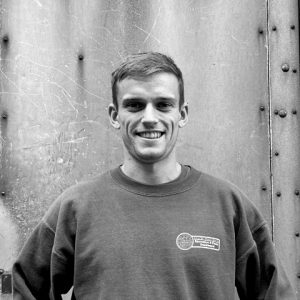
Luke Cullen (RAEng Enterprise Fellow)
Do you have the feeling that everything is connected somehow? Well, so does Luke. Luke’s research focusses on the availability on the risks to supply and the environmental impacts of materials in complex industrial supply chains. He is currently working as a post-doctoral research associate on the Climate Compatible Growth project. For his PhD, as part of the AI for Environmental Risks CDT, Luke developed a framework based on graph representation learning to map supply chain specific greenhouse gas emissions. Luke has a Master’s degree in Geophysics from the University of Leeds, after which he spent two years working as a contractor in the mining and energy industries in Australia. He then returned to the UK as a software developer and has an MRes in using machine learning to accelerate damage assessments following natural disasters.

James McAllister (Junior Software Engineer)
James is a software engineer on the CCG project, researching disruption in critical material supply chains. He graduated from the University of Cambridge in 2025 with a Master’s degree in Engineering. His master’s thesis focused on failure mechanisms in orthopedic screws.
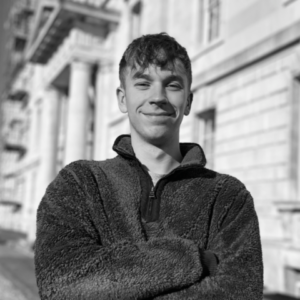
Daniel Erwig (Junior Software Engineer)
Dan graduated from the Department of Engineering in 2025 with a MEng in Information and Computer Engineering. He is now working as a software engineer for the Climate Compatible Growth (CCG) project, where he develops machine-learning methods to model the likelihood and impacts of supply-chain disruption.
Past People
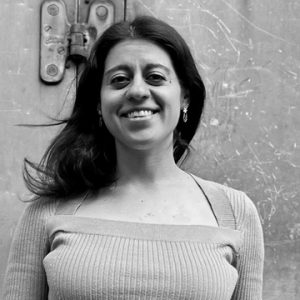
Karla Cervantes Barrón (Senior Research Associate)
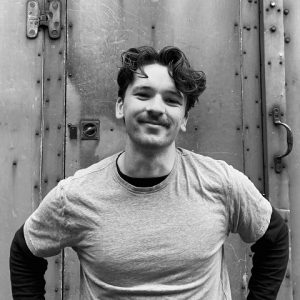
Scott Jeen (Research Associate)
Scott is interested in machine intelligence and its capacity to help humans reduce their societal emissions. In practice, this means writing machine learning algorithms – primarily Deep Reinforcement Learning techniques (DRL) and Gaussian Processes (GPs) – to optimise the control of equipment in buildings and industrial processes. He’s particularly interested in a DRL agent’s ability to take actions that, at first, seem counter-intuitive to humans, but later provide us a richer understanding than we could have achieved alone (cf. AlphaGo’s move 37). He believes these agents can teach us much that we do not yet understand about the complex systems fundamental to climate change mitigation. In the past, Scott has completed engineering degrees at the University of Cambridge and the University of Edinburgh, conducted research with the Use Less Group at Cambridge, and worked as a corporate consultant. His research is generously funded by the EPSRC, Emerson Electric and Sir Sean Connery’s Scottish International Education Trust.
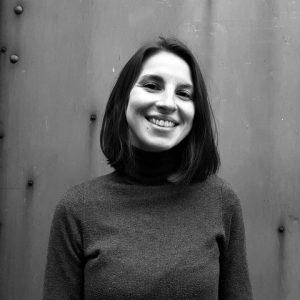
Ana Morgado (PhD Student)
Ana is a PhD student investigating innovative metrics to assess resource efficiency in emissions-intensive industries. The goal of Ana’s research is to develop a simple and comprehensive tool that allows policy-makers and (public and private) investors to understand the efficiency of the combined use of materials and energy during manufacturing, and its impact on emissions. Ana has a Master’s in Chemical Engineering – Energy and Environment from the Faculty of Engineering of the University of Porto, and a MPhil in Chemical Engineering and Biotechnology from the University of Cambridge looking at the impacts of increasing Arctic temperatures on the destabilisation of methane hydrates reservoirs within permafrost. In 2023, Ana interned as an Energy Analyst at the International Energy Agency having contributed to some of the Agency’s flagship publications such as the World Energy Outlook.
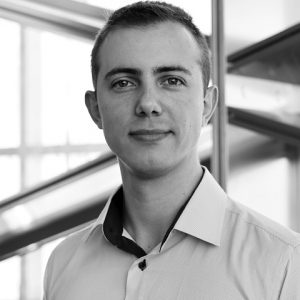
Natanael Bolson (Research Associate)
Natanael is mapping energy and material flows to establish efficient resources use in the foundation industries as part of the TransFIRe project. His background is in the analysis of energy systems towards sustainable development. He holds a PhD in Energy Resources and Petroleum Engineering and a MSc in Mechanical Engineering from King Abdullah University of Science and Technology (KAUST) in Saudi Arabia. Prior to KAUST, he obtained a BSc in Renewable Energy and Environment Engineering at the Federal University of Pampa in Brazil.
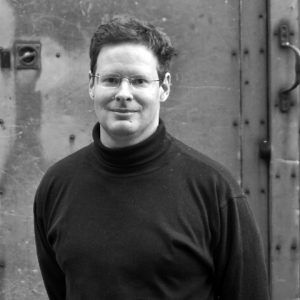
Cyrille Dunant (Postdoctoral Research Associate)
Dr Dunant holds a PhD in Material science. His background in concrete durability has led him to develop an interest in design and efficient use of materials. He is now currently working on two projects, both centred on making better use of steel in construction. The first explores the barriers to steel reuse, an important potential source of carbon and energy savings. The second project looks at the design process in construction and the role of material efficiency in building conception.
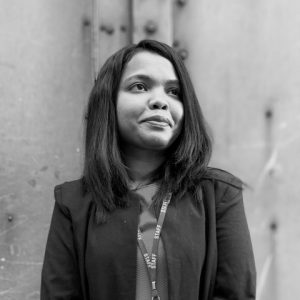
Samantha Islam (Research Associate)
In 2021 Samantha completed her PhD on efficiency improvement in food supply chains via traceability under Commonwealth scholarship. She undertook a research-Masters on Sustainable Manufacturing from Monash University, Australia and a Bachelor on Industrial and Production Engineering from BUET, Bangladesh. Samantha worked as a Quality assurance officer at the Department of Supply Chain at Save the Children. Before coming to Cambridge, she pursued another research position at UNSW based in Australian Defence Force Academy for a year.
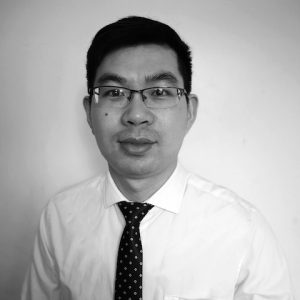
Fanran Meng (Research Associate)
Fanran is a Research Associate working on the critical review and data modelling and uncertainty across petrochemical sectors as part of the C-THRU project. Previously, he was a research fellow in Sustainable Material and Technologies at the University of Nottingham. He received his PhD degree in Materials Engineering and Materials Design from the University of Nottingham in 2017. His research focuses on resource efficiency and life cycle sustainability which integrates engineering and science-based disciplines with insights from economic sciences to develop system optimisation and policy relevant strategies.
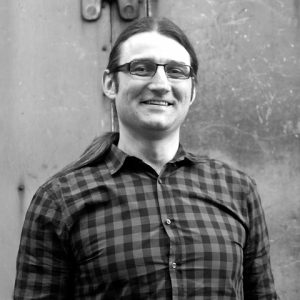
Michał Drewniok (Postdoctoral Research Associate)
Michal is a Research Associate in Material Efficiency in Construction at the Department of Engineering, University of Cambridge. His background is civil engineering and he holds a M.Sc. Eng. with PhD in concrete technology pending from Silesian University of Technology in Gliwice, Poland. During his PhD, he worked on the technological factors which determine the self-compacting concrete formwork pressure. Prior to his current position, Michal worked as a Site Engineer and Concrete and Production Technologist at Precast Concrete Manufacture.
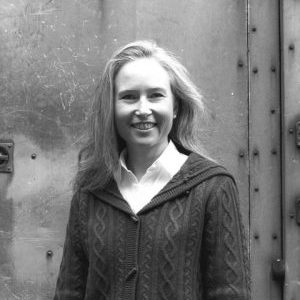
Jennifer Bitting (PhD Student)
Jennifer is researching a resource efficient means of obtaining sustainable water supply for California’s Central Coast. She has a BS in Environmental Engineering from California Polytechnic State University, San Luis Obispo and an MPhil in Engineering for Sustainable Development from Cambridge University. Jennifer is a registered professional civil engineer (PE) in the state of California. She worked for the California Central Coast Regional Water Quality Control Board for 7 years as Storm Water Program Manager.
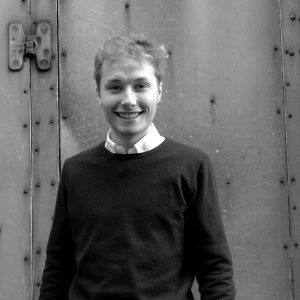
Matteo Craglia (PhD Student)
Matteo graduated with a 1st class honours in mechanical engineering (BAI) from Trinity College Dublin and subsequently completed an MPhil in Energy Technologies in Cambridge in 2016. Matteo’s PhD research focuses on energy efficiency in the rapidly evolving transportation sector and aims to assess how much engineering efficiency improvements in vehicles lead to real energy savings. Matteo is funded by the UK Engineering and Physical Research Council (EPSRC).
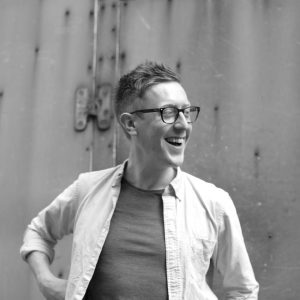
Peter G. Levi (PhD Student)
Peter graduated with a first class honours degree in Civil Engineering (MEng) from the University of Bristol, having spent a year studying abroad at the University of California at Davis. He then went to work in industry as an engineering consultant for two years, before pursuing post-graduate study. Peter completed an MPhil degree in Engineering for Sustainable Development at the University of Cambridge, exploring uncertainty in levelised cost estimates for electricity generation technologies in the UK, and was published as an article in the journal Energy Policy.
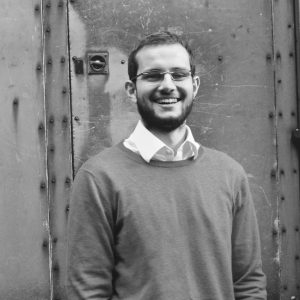
Charalampos (Harry) Michalakakis (PhD Student)
Harry graduated from University College London with a 1st class honours MEng in Chemical Engineering with a dissertation on modelling the use of CO2 in enhanced oil recovery. He completed an MPhil in Energy Technologies at the University of Cambridge with a masters thesis on resource efficiency in ammonia production. He is continuing this research as a PhD student looking at methodologies of identifying resource savings in the chemical industry. Find him on Twitter.
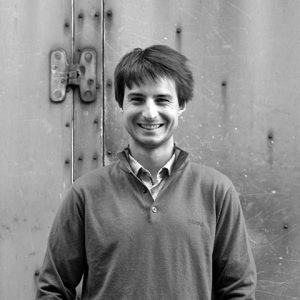
Leonardo Paoli (PhD Student)
Leonardo graduated as a mechanical engineer from Imperial College London in 2014. During his undergraduate studies he conducted research on sustainability related topics such as sustainable transport policy and Life Cycle Assessment (LCA) of a hybrid concentrated solar power plant. After his graduation he worked as a Trainee for the European Commission in the Directorate General for Research and Innovation. Leonardo’s PhD aims to build an Ashby-type map for energy efficiency of conversion devices relating energy efficiency and cost to other physical variables.






